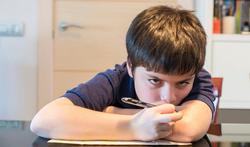A behavioral disorder occurs when the behavior is very problematic, persists for more than a year despite a supportive, safe context and when it hinders the person very much in the school environment, in making friends and in contact with family.
What is a conduct disorder?
A behavioral disorder means that a pattern of rebellious, aggressive or antisocial behavior has arisen in the child that others can suffer from a lot. This manifests itself, for example, in hostility, irritability, secretive behavior or open disobedience. The child himself can also suffer from his behavior. It can experience problems at home, at school or in other social contacts.
Behavioral disorders are often accompanied by disorders in other developmental skills, for example ADHD, dyslexia, depression or motor difficulties. Since children with behavioral disorders have difficulty functioning in society, they often become disillusioned with the people around them and turn away from them. There is a chance that they will fall outside of society, while they just need extra support and attention.
Types of behavioral disorders
A behavioral disorder is usually diagnosed in a specialized center with the help of a multidisciplinary team (psychologists, (child) psychiatrists, occupational therapists and physiotherapists). They will thoroughly test and observe the child. If other, causal problems come to the surface, such as dyslexia, depression or attention disorders, they will be addressed first.
Treating a behavioral disorder is difficult and requires a lot of time and patience. For the best result, it is important that the child receives guidance from people from his environment such as parents, social workers, teachers and supervisors at school. Sometimes specialized support is also needed in the form of psychotherapy, possibly supplemented with medication. Admission to a special centre is also possible. There they start a therapeutic trajectory together.




